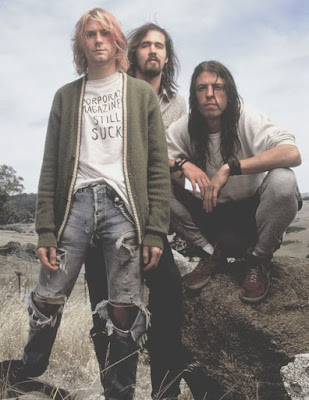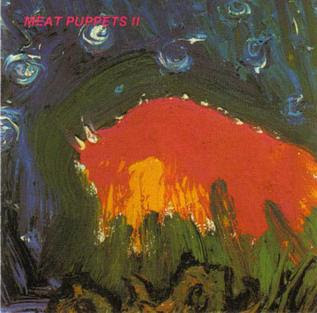I was inspired by a podcast called The 500 hosted by Los Angeles-based comedian Josh Adam Meyers. His goal, and mine, is to explore Rolling Stone Magazine's 2012 edition of The 500 Greatest Albums of All Time.
Album: # 313
Album Title: MTV Unplugged In New York
Artist: Nirvana
Genre: Alternative Rock, Grunge
Recorded: Sony Music Studio (Live) - New York
Released: November 18 , 1993
My age at release: 28
How familiar was I with it before this week: Very
Is it on the 2020 list? Yes, #279 - moving up 34 spots
Song I am putting on my Spotify Playlist: Pennyroyal Tea (Selected by my brother (in-law) and Nirvana fan, Dan
Earlier this year, the Grade 7 students and I spent some time discussing leadership. I kicked off the conversation with a fascinating, three-minute TED talk video, featuring musician, author and entrepreneur, Derek Sivers.
As the video continues, two more people join the duo and are immediately embraced as equals by both the dancing man and his first follower. Quickly, they are joined by four more and suddenly there is a tide of recruits. "This is the tipping point", states Sivers, "as more people join in, it's less risky. So those that were sitting on the fence before, now have no reason not to. They won't stand out, they won't be ridiculed, but they will be part of the in-crowd if they hurry."
"Leadership is over-glorified. Yes, it was the shirtless guy who was first, and he'll get all the credit, but it was really the first follower that transformed the lone nut into a leader. So, as we're told that we should all be leaders, that would be really ineffective."
"What do you call someone who doesn't want to lead or follow?"
- Former World Boxing Champion Muhammad Ali's decision to abstain from participation in the Vietnam War, despite its resultant heavy fine, potential jail time and a ban from boxing.
- India’s Mahatma Gandhi's opposition to tyranny through non-violent protest.
- Astronomer Nicolaus Copernicus risking death by contradicting the Catholic Church's 15th Century belief that the earth, not the sun, was the centre of our solar system.
 |
| Nirvana guitarist and singer Kurt Cobain |
 |
| Nirvana is typical grunge apparel ] (l-r Cobain, Novoselic & Grohl) |
All this information is important context. It can't be understated how monumental the Nirvana performance was to the world and how important it was to the executives at MTV -- executives who had not factored in the difficult and contrary nature of this cynical, frustrated group, who were on the verge of breaking up permanently.
- Cobain was struggling with a heroin addiction, and rehearsals had gone poorly. There was grave concern that the performance would not meet expectations. The day before filming, Cobain refused to play as he struggled with symptoms of withdrawal.
- The band rebuffed executive requests to play their biggest hit, Smells Like Teen Spirit, and instead peppered their set with lesser-known songs written by other artists including an obscure Scottish alternative rock band, The Vaselines.
- The band had teased an appearance by special guests and speculation among the fan base was rich. Would it be one of the group's famous colleagues from the Seattle music scene? Eddie Vedder of Pearl Jam or perhaps Chris Cornell from Soundgarden? No. It was another obscure band from Arizona, The Meat Puppets. Moreover, Nirvana chose to play three songs from that group's second record, Meat Puppets II, ostensibly promoting it more than their own recent release, In Utero.
- Although his amplifier was slightly disguised on-stage, Cobain broke with Unplugged tradition by performing the David Bowie song The Man Who Sold The World as an electric performance.
- After being denied permission to play their controversial song Rape Me, the band slipped in an even more disturbing song, Polly. This track, from their album Nevermind, is about a 1987 incident in Tacoma, Washington, where 14-year-old was abducted, raped and tortured with a blow-torch. The unidentified girl, named Polly, but only in the song, escaped. Her captor is still serving a life sentence.
 |
| Portion of the article from the Spokane Chronicle |
- Finally, when asked to return to the stage for an encore, the band flatly refused.
It was also a commercial juggernaut, selling over 310,000 copies in its first week, a record for Nirvana. It would go on to be certified 8x platinum (8 million copies sold) in the United States, with millions more sold world wide. It received a Grammy Award in 1994 and sits on The 500, at position #313 -- the only Unplugged record to make the list. After all, sometimes a contrary stance can launch you to greatness.







No comments:
Post a Comment